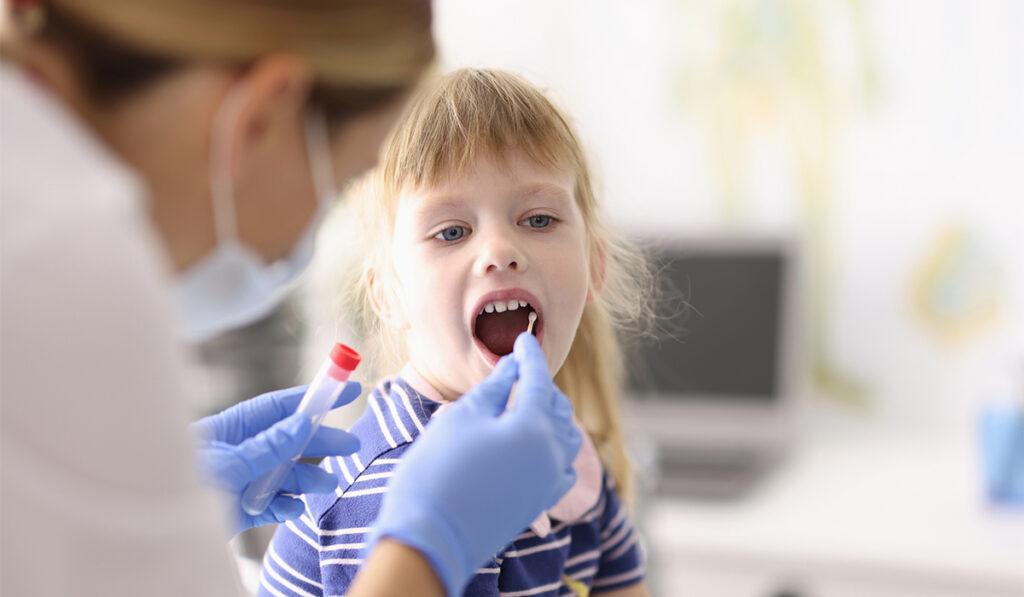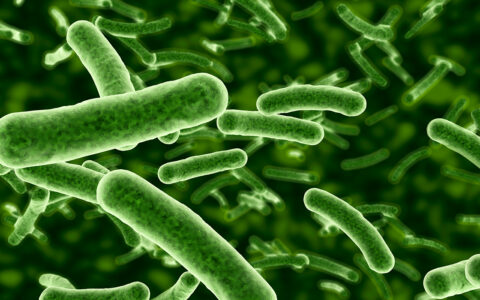It’s unusual for children to develop kidney stones, but the numbers are rising.
The team at Monroe Carell Jr. Children’s Hospital at Vanderbilt now sees five to 10 new patients per month at its pediatric kidney stone clinic, said Tracy Hunley, M.D., an associate professor in the Division of Pediatric Nephrology.
Hunley was part of a team that conducted a multi-center study in 2023 evaluating genetic testing outcomes for children with kidney stones. Their study, published in Pediatric Nephrology, explored how well genetic testing could diagnose inherited causes of nephrolithiasis, the presence of kidney stones, or nephrocalcinosis, an excess of calcium in the kidneys that contributes to stone formation.
Historically, nephrologists relied on 24-hour urine tests to diagnose young patients presenting with kidney stones. The urine test has drawbacks, however.
Hunley said it can be difficult to capture a full 24 hours of urine production in children, either because very young children are still in diapers or because older children can’t or don’t reliably collect all their urine. Also, any individual sample can potentially offer a too-limited picture of urine chemistry.
“Variability [due to] time of day is significant enough that it can be inaccurate,” Hunley said.
Genetic Causes in a Third
The study looked at results of the Invitae Nephrolithiasis Panel carried out between January 2019 and September 2021 at seven medical centers involving 113 children with kidney stones, nephrocalcinosis, or both.
The test uncovered a genetic indicator for these conditions in about a third of the subjects – a “pretty significant” finding, according to Hunley. The study reported variants in 28 genes and identified 20 conditions.
Kidney stones develop for a variety of reasons. For example, primary hyperoxaluria, a rare, progressive metabolic disease in which there is too much oxalate in the urine, causes kidney stones and also may lead to kidney failure and possibly death.
This condition and other rare illnesses respond to treatment “if you can identify them early,” Hunley said. Genetic testing may help point the way to correct treatment – and help parents better manage their child’s illness.
“If you tell a parent their child has this genetic diagnosis and there is a likelihood of kidney stones from now to forever, they’re going take that a little bit more seriously,” he said.
Communicating the importance of adequate fluid intake to day care providers, school personnel and others, can help assure the patient remains sufficiently hydrated. In some cases, treatments or medications personalized for the diagnosis may be prescribed, so adherence to a regimen is required.
Genetic screening for kidney stones has existed for at least a decade, but has largely been considered too expensive for frequent use, with patient billing reaching into the four figures, Hunley said.
Before the study, Hunley said he had only ordered these five times in 10 years on patients who he was virtually certain had a genetic component to their illness. During the study, which covered the cost of the procedure, he referred more than 20 patients for genetic testing to look for underlying causes.
“Before a kidney stone-related genetics panel was widely available, you really just had to have a pretty strong idea of what you were dealing with,” Hunley said.
Without testing, only an “amazing diagnostician” could pinpoint a diagnosis from among a menu of rare illnesses, he added.
Diagnostic Improvement
Stones can occur even in infants, most often in premature newborns whose lungs are treated with diuretics.
Questions arise when they appear in babies without that medical history, Hunley says.
“Why does this baby have nephrocalcinosis? … We just can’t say that they don’t have anything, just because we checked one urine calcium test, and it was normal.”
With a third of the study participants yielding a genetic cause behind their condition, Hunley says he will continue to use genetics as “part of my diagnostic armamentarium.”
“I would now say to an insurance company: a 3 year old with kidney stones needs this test,” Hunley said.
“It’s a real-world testament to the validity of genetic testing in kidney stones.”





